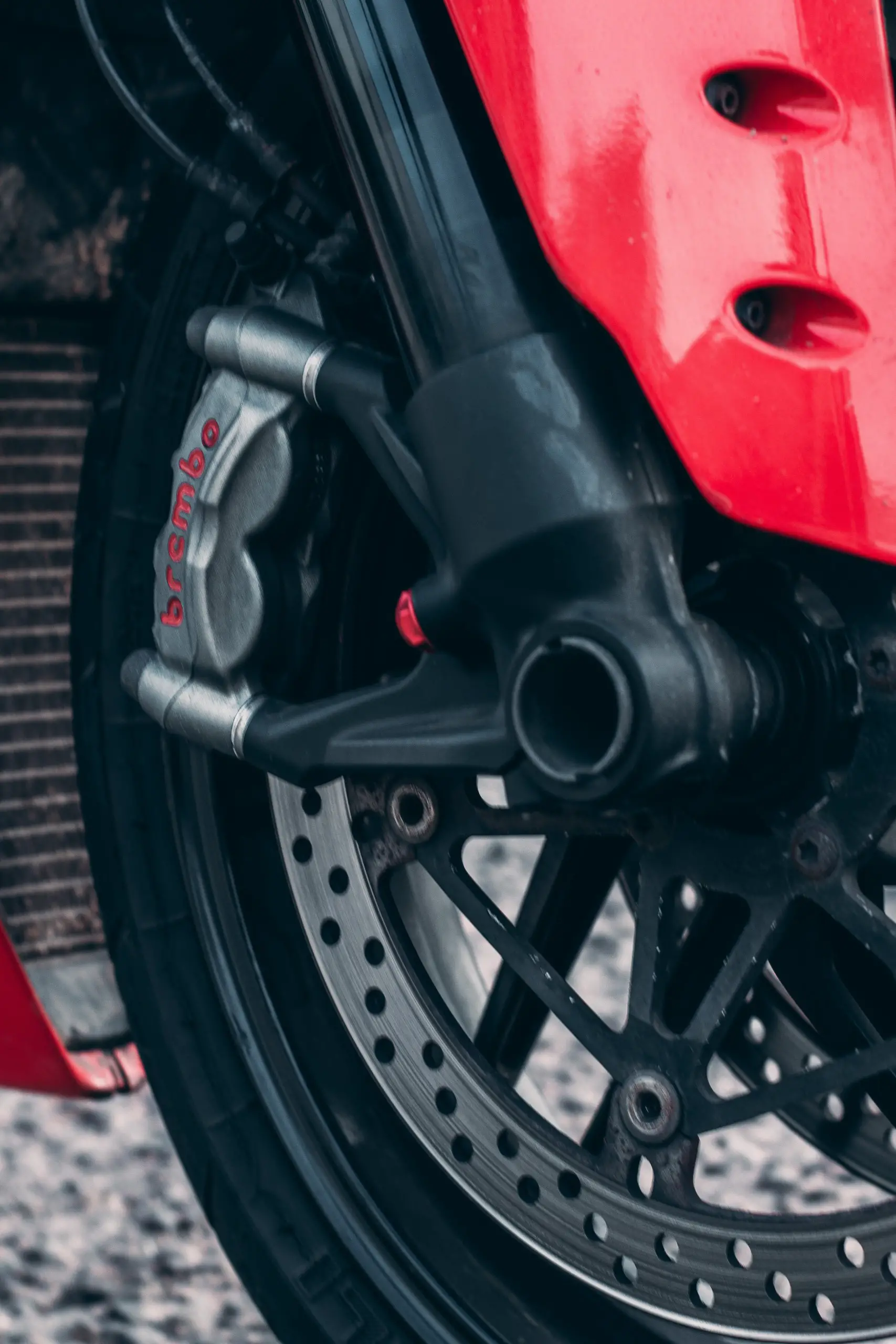With their signature calipers in bold color schemes peeking out through the spokes of alloy wheels on the world’s top automobiles, Brembo brakes are the gold standard in the world of braking systems. They have been featured on cars made by renowned manufacturers since the 1960s, and Brembo brakes have a strong pedigree in Formula One racing. So, what makes them so good?
For over 60 years, Brembo has taken an innovative approach toward designing and manufacturing braking systems, including:
- Using advanced, lightweight materials
- Maximizing disc size and caliper power
- Achieving maximum friction co-efficiency
- Creating a signature look with bold colorways
Brembo brakes are the complete package of world-class performance and stunning Italian design. And in typical Brembo fashion, the company continues to improve upon its already legendary status as the premier manufacturer of high-end braking systems, with an ever-watchful eye toward the future. Here’s how and why.
What Makes Brembo Brakes So Good?
According to its website, Brembo’s brakes can bring a vehicle traveling at 62 mph (100 km/h) to a complete stop in a mere 2.2 seconds. And according to a respected German automobile publication, 40 of the world’s 50 best-braking road cars are equipped with Brembo braking systems, making the Italian company the world’s premier braking system manufacturer hands down.
There are several reasons why Brembo is the gold standard of brakes, but here are 5 factors that have contributed to achieving this lofty status:
- Optimal sizing – Recognizing that braking power is a direct function of disc radius, caliper clamping force, and friction coefficient, Brembo’s brake discs are among the largest in the industry. Its calipers are made in 4, 6, and 8-piston configurations.
- Lightweight construction – It is one thing to manufacture industry-leading braking systems. Still, it is quite another to do so while also preserving vehicle performance (e.g., acceleration and top-end speed). To achieve this delicate balance, Brembo brake components feature lightweight construction, including ceramic carbon discs that are half the weight of traditional discs.
- Advanced materials – The basic principle underlying disc braking systems is harnessing the power of friction to stop the motion of vehicles. With this in mind, Brembo continues to push the envelope in utilizing various types of friction material, in the manufacture of both its discs and brake pads, in its quest to maximize the friction coefficient factor of its braking systems.
- Full system integration – The effectiveness of any braking system truly is the sum of all of its parts. No manufacturer understands this better than Brembo, as evidenced by its painstaking approach to achieving full system integration and optimization between components like the disc, caliper, pad, suspension, and control box.
- Distribution of braking power – While the front axle of vehicles gets the most attention, when it comes to optimizing braking effectiveness, Brembo’s philosophy is to produce complete braking solutions. This entails incorporating rear axle braking into its systems to achieve maximum stopping ability.
With their calipers’ signature powder-coated color schemes, Brembo brakes have become synonymous with head-turning design. But it is their industry-leading performance that makes them the braking equipment of choice for automobile manufacturers, including the likes of Ferrari, Porsche, Mercedes, and many more.
Brembo Brakes are Found on the World’s Best Cars
How respected are Brembo brakes in the auto industry? The list of car manufacturers that feature this Italian-made component reads like a who’s who of the world’s premier names in luxury automobiles and high-performance sports cars.
Here is just a sampling of renowned vehicles that are factory-equipped with Brembo brakes:
- Aston Martin
- Audi
- Bentley
- BMW
- Cadillac
- Corvette
- Ferrari
- Jaguar
- Lamborghini
- Land Rover
- Lexus
- Maserati
- Mercedes (including AMG and Maybach)
- Porsche
It is important to note that beyond being the OEM (original equipment manufacturer) for these car brands, Brembo brakes are also immensely popular in the highly robust aftermarket arena for brake components, and they are easily adaptable to just about any make and model.
The Brembo Spirit of Innovation
One of the hallmarks of Brembo’s rise to being the world’s premier manufacturer of braking systems is its steadfast dedication to improving its products. It was one of the first companies to transition from traditional iron discs to aluminum ones, and then repeated the feat by introducing ceramic carbon materials in the production of its discs.
This spirit of innovation is perhaps no more evident than today, as electric vehicles continue to gobble up automobile market share around the world.
Recognizing that its tried and true disc brake platform is suited exclusively for fuel-powered vehicles, Brembo is facing a few new realities of the modern era of automobiles, including:
- As advanced as its disc braking systems are, they represent a legacy technology in the face of the emergence of electric vehicles.
- Simply put, disc brakes would be too noisy if installed on electric cars that run barely louder than a whisper.
- Electric cars feature regenerative braking, whereby the energy of braking is recaptured and fed back to the battery.
Brembo has therefore embarked on an aggressive campaign to make inroads into electric car braking systems, including the possibility of acquiring an existing player in the rapidly growing electric vehicle industry.
Conclusion
Brembo has achieved its lofty status as the world’s premier designer and manufacturer of disc braking systems through constant innovation and eye-catching design. While it is in the unfamiliar position of playing catch-up in the electric vehicle arena, if its own track record is any indication, Brembo will no doubt soon enough find itself at the forefront of the electric brake industry as well.

